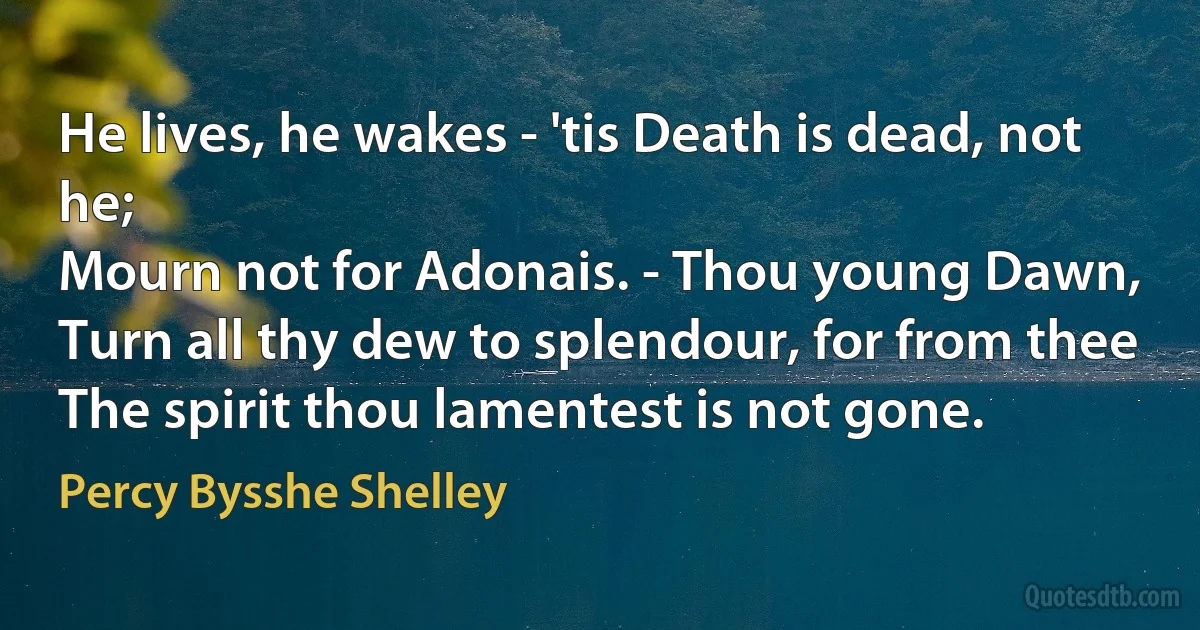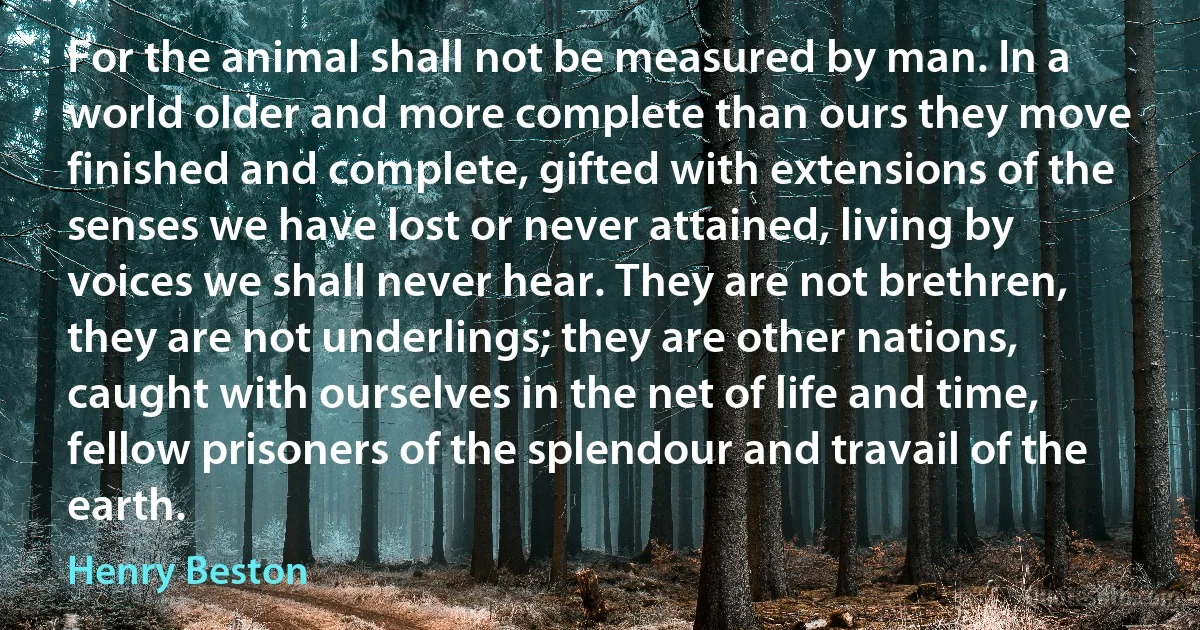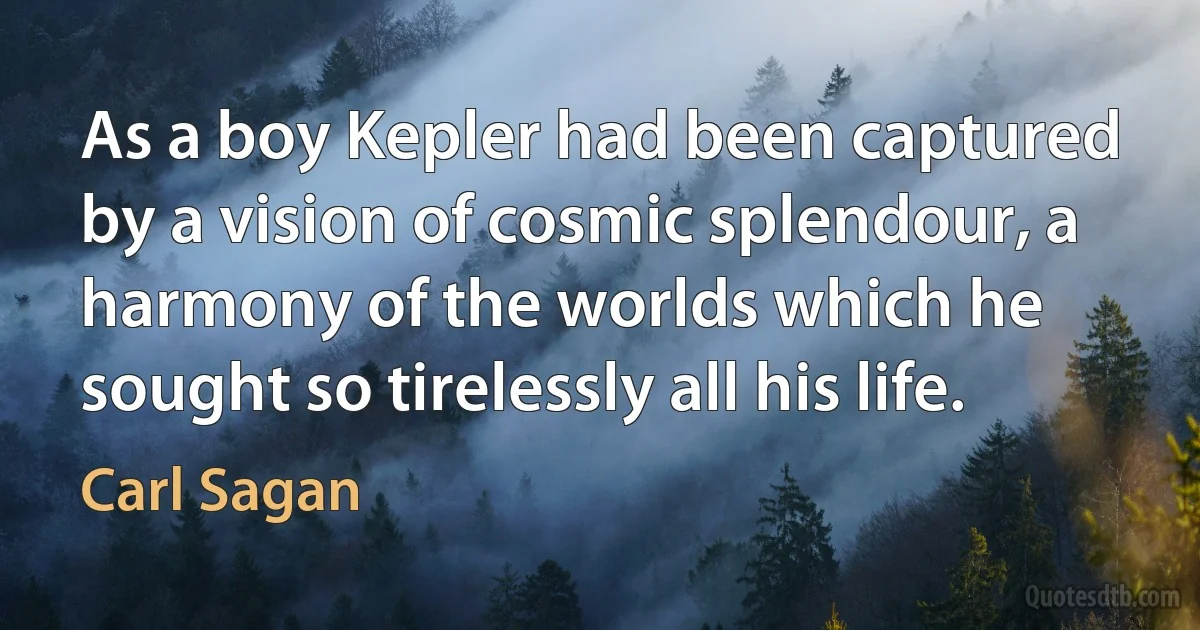Splendour Quotes - page 3
The Sultan, contrary to the disposition of man, which induces him to prefer a soft to a hard couch, and the splendour of the cheeks of pomegranate-bosomed girls to well-tempered sword blades, was so offended at the standard which Satan had raised in Hind, that he determined on another holy expedition to that land.

Mahmud of Ghazni
After settling the affairs of Ajmir, the conqueror marched "towards Dehli (may God preserve its prosperity and perpetuate its splendour!) which is among the chief (mother) cities of Hind. When he arrived at Dehli, he saw " a fortress which in height and strength had not its equal nor second throughout the length and breadth of the seven climes." The army encamped around the fort. " A torrent of blood flowed on the field of battle, and it became evident to the chiefs that if they did not seek for safety from the sword of the king of the earth, and if they should deliver into the hands of Satan the time of option and the reins of good counsel, the condition of Dehli would be like that of Ajmir; so from the dread of kingly punishment, the Rai and mukaddams of that country placed their heads upon the line of slavery, and their feet within the circle of obedience, and made firm the conditions of tribute [mdlguzdrt) and the usages of service.

Muhammad of Ghor
O fortunate one, thy vow hath become successful. The lord of the celestials hath been gratified, and is willing to give thee a son such as thou desirest, of superhuman achievements and great fame. He will be the oppressor of all enemies and possessed of great wisdom. Endued with a great soul, in splendour equal unto the Sun, invincible in battles, and of great achievements, he will also be extremely handsome. O thou of fair hips and sweet smiles, the lord of the celestials hath become gracious to thee. Invoking him, bring thou forth a child who will be the very home of all Kshatriya virtues.

Kunti
I have not seen Thee, yet I tell Thy praise,
Nor known Thee, yet I image forth Thy ways.
For by Thy seers' and servants' mystic speech
Thou didst Thy sov'ran splendour darkly teach,
And from the grandeur of Thy work they drew
The measure of Thy inner greatness, too.
They told of Thee, but not as Thou must be,
Since from Thy work they tried to body Thee.
To countless visions did their pictures run,
Behold through all the visions Thou art one.

Yehuda he-Hasid
I believe that day [Ras Tafari's victory parade, Addis Ababa, 3 Nov 1916] implanted in me a life-long craving for barbaric splendour, for savagery and colour and the throb of drums, and that it gave me a lasting veneration for long-established custom and ritual, from which would derive later a deep-seated resentment of Western innovations in other lands, and a distaste for the drab uniformity of the modern world.

Wilfred Thesiger
...One thing alone can drive us, against our will, beyond these modest desires. If the next French attack against the German Empire found the Dutch among the enemy faction, at that exact moment Holland, by her senseless mistrust, would herself be precipitated into her ruin. Then, and only then, would it be necessary to attempt to put an end once and for all to the millenary struggle over the ruins of ancient Lotharingia, and once more to compel the countries of the Lower Rhine perforce to rejoin the great people whom they abandoned long ago. Holland holds in her hands the means of averting, by a just and fearless policy, these interminable conflagrations. The majestic progress of German affairs, the unity of our Empire from the North Sea to Lake Constance, the complete organisation of this unity are not to be impeded by the outcries of small peoples who cannot forget the splendour of past days.

Heinrich von Treitschke
I tell you again that the recollection of the manner in which I saw the Queen of France in the year 1774 and the contrast between that brilliancy, Splendour, and beauty, with the prostrate Homage of a Nation to her, compared with the abominable Scene of 1789 which I was describing did draw Tears from me and wetted my Paper. These Tears came again into my Eyes almost as often as I lookd at the description. They may again. You do not believe this fact, or that these are my real feelings, but that the whole is affected, or as you express it, 'downright Foppery.'

Edmund Burke
Raise a song for her, O Muse!
The violet-crownèd maiden,
And praise her soft throat's changing hues,
Her low voice, laughter-laden. Sing yet again her thousand charms,
Her eyes entrancing splendour,
Her swarthy cheeks and supple arms
And bosom dark and tender. Yea, sing forevermore of her,
My mistress soft-beguiling,
Fairest of all who are, or were,
My Sappho, sweetly-smiling.

Alcaeus of Mytilene
Whether the associations of the Imperial name are bad, as Mr. Gladstone thinks, I will not discuss. Splendid and imposing they certainly were, not only in the age of the Antonines, but in the best days of the mediaeval Empire, from Otto the Great to Frederick II. But that splendour they have lost. ... In fact, the title of King is now the less common of the two, and, with such associations as our kingship has, it is far more dignified. There has been a King of the English ever since the ninth or tenth century; no other Monarchy in Europe (except the lands of our Scandinavian kingsfolk and except the Crown of St. Stephen) can boast of anything like an equal antiquity. ... Why endanger the pre-eminence of style of the only European Crown which combines the glories of ancient legitimacy with those of equally ancient constitutional freedom?

James Bryce, 1st Viscount Bryce



